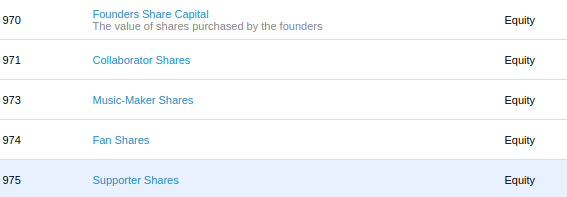This is a policy proposal under development. Feedback and questions welcome.
Types of Work
Unchartered Work
Work that has not been approved for the co-op. A Worker may decide to track their hours for unchartered work, however unchartered work and independent projects will not increase one’s share of the Worker Dividend.
Chartered Work
Work that has been approved for the co-op. All descriptions of chartered work are maintained in the Handbook by the Worker Coordinator.
Both Members and non-Members can propose work for consideration to be chartered.
Hourly Projects
Time-tracked by the hour. Hourly Projects can only be chartered with the approval of the Executive.
- Workers are invited to track their hours.
- Worker-Members are encouraged to track their hours.
- Staff (paid Workers) are required to track their hours.
All hours spent on Hourly Projects increase a Worker’s share of the Worker Dividend.
Bounty Projects
Hours for a Bounty are agreed in advance. Workers are invited to track the hours they spend on a Bounty, however the agreed-upon number of hours will not be adjusted after chartering.
To be chartered, a Bounty must have:
- a clear description of the work
- a definition of done
- a concrete estimate of anticipated work hours
- a deadline
- a scheduled follow-up with the Executive or Worker Coordinator within a week of the deadline
- approval by either the Executive, a majority of Worker-Members, or the Board of Directors
For the agreed-upon hours to be registered, the Executive and Worker Coordinator must agree that the Bounty has been completed as defined. The hours are then registered by the Worker Coordinator; these will increase the Worker’s share of the Worker Dividend.
If the contributor does not wish to participate in the Worker Dividend, their work will be labeled as a donation and the hours will not be registered.
Retro Project
If completed unchartered work has been found to have been of value to the co-op, anyone (including the contributor themself) may propose it to be retroactively chartered, with hours recognized toward increasing a share of the Worker Dividend.
A Retro Project can only be chartered by a majority of Worker-Members.
Current Hourly Projects
These chartered hourly projects align with the [Projects used on Clockify]. These are reviewed regularly by the Executive. The descriptions are maintained in the Handbook by the Worker Coordinator.
Examples:
Development
Coding, research, planning, art & design work for improving the platform, as defined in an Epic. Lead: Project Manager
Coordination
Moving information around. Moving people around. Helping people find things. Organizing meetings. Syncing with the co-op and catching up on news and posts. Includes Retrospectives. Lead: Worker Coordinator; Board advisor: Secretary
Services
Internal-facing information and assistance, focused on clarity and accuracy. Creating documentation, guides, and FAQs. Fulfilling requests from users in the inbox. Manages listener, artist, and label onboarding. Maintains the Forum. Board advisor: Secretary
Communications vs Outreach
Comms
Public-facing information and assistance, focused on presentation and connections. Social media work, press releases. Editorial work and writing. Content production. Draws upon Services’ documentation when answering FAQs. Board advisor: Chair; Lead: Editorial Director Oversight: Story
Story
Editorial direction. Music industry consulting and discussion, discernment and establishment of partnerships, branding inquiries, ambassadorial events. Label and disitributor relations. Lead: Story Coordinator
Accounting
Cost accounting, including paying our artists and contributors and taxes due; Revenue accounting, including all receipts, subscriptions and grants; Mutual accounting where we value and record mutual exchanges of all kinds; and Management accounting, where we track our effectiveness and efficiency. Board advisor: Treasurer.
Policy & Budgeting
Building proposals for ways we can improve collaboration, culture, or governance at the co-op, created either through writing or discussion. Board advisor: Secretary
Uploading
Manually uploading releases on behalf of artists or labels. This project will be disbanded when the Dashboard Epic is completed and artists and labels can self-upload music.

